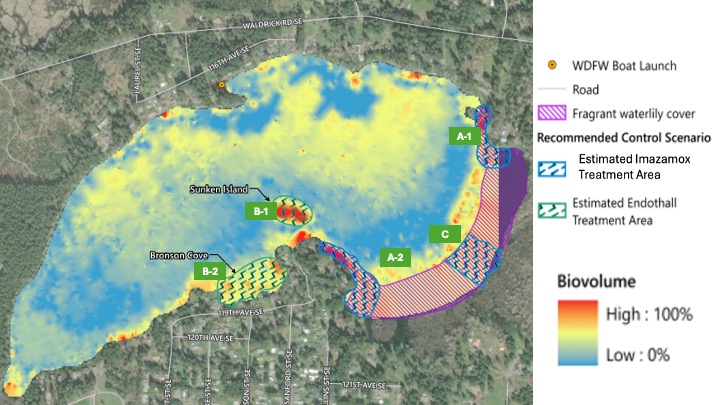The following information is from the Washington State Noxious Weed Control Board.
Why Is Yellow Flag Iris a Noxious Weed?
Yellow flag iris is an invasive ornamental perennial that is a problem in many states and other countries. It will sicken livestock if ingested and is generally avoided by herbivores. Contact with its resins can cause skin irritation in humans.
How would I identify it?
General Description
Yellow flag iris is a perennial, aquatic, herbaceous plant which grows 2 to 3 feet tall along shores in shallow water. Rhizomes spread and form large clumps.
Flower Description
Flowers few to several near stem ends. Flowers pale to dark yellow with brownish purple mottled markings. Flowers have 3 sepals and 3 petals, with petals shorter than sepals.
Where does it grow?
Yellow flag grows in temperate wetlands along the margins of lakes and slow-moving rivers. It is most commonly found in very shallow water or mud.
How Do I Control It?
Mechanical Control
If pulling or digging yellow flag care should be used to protect the skin as resins in the leaves and rhizomes can cause irritation. Because rhizome fragments can grow to form new plants, all rhizome fragments must be carefully removed.
Cultural Control
Seeds germinate and grow well after being burned in late summer. Also readily resprouts from rhizomes after burning.
Herbicide Control
It is best to cut the stems off, dispose of them properly, then apply the appropriate herbicide to the stump. Please refer to the PNW Weed Management Handbook, or contact your county noxious weed coordinator.



